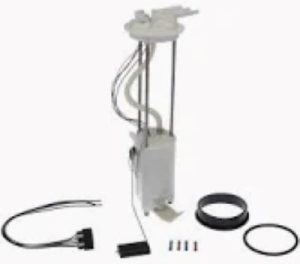Fuel pumps increase fuel economy by passing an exact amount of fuel to the engine for a perfect air-fuel balance. The perfect balance of air and fuel simultaneously affects the performance of the engine and the consumption of fuel, since for a maximum output of energy with minimal wastage, an optimum ratio of fuel and air has to be struck. A properly functioning fuel pump sustains necessary pressure on the fuel-usually between 40 and 80 PSI, depending on the particular engine-where fuel injectors are allowed to spray fuel effectively.
In other words, when the fuel pump works well, it cannot produce a "rich" mixture of air and fuel-meaning that more fuel would be delivered than the proportionate amount of air. A rich mixture involves incomplete combustion that causes a waste of fuel and leads to a loss in MPG as high as 10%. Fuel pumps help avoid such inefficiencies by maintaining pressure constant and flow consistent; hence, facilitating higher fuel economy. Regular checking of fuel pressure and filter replacement at certain mileage-high intervals, such as 20,000-30,000 miles, helps the pump function right and free from blockage and reduced pressure that would lower fuel efficiency.

Most modern fuel pumps are equipped with variable-speed technologies, which only control output per the engine's demand. On the low revolution per minute conditions of the car or at its cruise phase when running at low speeds, the pump decreases its output and saves power to reduce fuel consumption. Studies, in this regard, have pointed out that variable-speed pumps improve the overall fuel economy by about 5%, making them an ideal combination in modern efficient vehicle models.
The quality of the Fuel Pump adds to fuel efficiency. Performance pumps, like Bosch and Walbro, are designed to reduce resistance and maximize flow rates to minimize stress on the engine. Low-quality pumps, however, cannot maintain consistent pressure; hence, the fuel utilization and emission become inefficient. Replacing a worn or inefficient fuel pump with one of high quality restores fuel economy and enhances engine performance, often times creating improvements in MPG that are quite noticeable.
Fuel pump, with continuous fuel supply, variable speed, and high-quality construction, play an important role in supporting efficient consumption of fuel, minimization of emissions, and maintenance of optimum levels of vehicle performance.